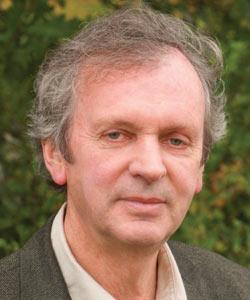David Cameron has denied the recent wave of riots were due to government cuts. In a speech on Monday, August 15th, he blamed declining moral standards, bad policing, bad parenting, schools, and the welfare system.
In response, Labour leader Ed Miliband attacked the government for resorting to “knee-jerk gimmicks” and said it should not blame police, parents, or the “so-called underclass”.
Mr Cameron said, “These riots were not about race: the perpetrators and the victims were white, black and Asian. These riots were not about government cuts: they were directed at high street stores, not Parliament. And these riots were not about poverty: that insults the millions of people who, whatever the hardship, would never dream of making others suffer like this. No, this was about behaviour, people showing indifference to right and wrong, people with a twisted moral code, people with a complete absence of self-restraint.”
Mr Miliband said, “We all bear a share of responsibility for the society we create: governments, Labour and Conservative; powerful elites in politics; business and the media; and all of us – me and you as well.”
Both leaders agreed that bankers, MPs, and the media were partly to blame for the riots.
“Moral decline and bad behaviour is not limited to a few of the poorest parts of our society,” said Mr Cameron. “In the banking crisis, with MPs’ expenses, in the phone hacking scandal, we have seen some of the worst cases of greed, irresponsibility, and entitlement.”
In his speech, the prime minister set out an ambitious programme to fix what he called Britain’s “broken society”.
“I don’t doubt that many of the rioters out last week have no father at home,” he said. “Within the lifetime of this Parliament we will turn around the lives of the120,000 most troubled families in the country.”
Schools also had a part to play in the “social fight-back”, he said. “If young people have left school without being able to read or write, why shouldn’t that school be held more directly accountable?”
He went on to suggest the introduction of elected police and crime commissioners as well as scrapping police paperwork. “For years we’ve had a police force suffocated by bureaucracy, officers spending the majority of their time filling in forms and stuck behind desks,” he said.
The Conservatives already attempted to introduce such American-style commissioners last May, but their plans were defeated in the House of Lords after the Lib Dems objected.
Mr Miliband called for a commission to look for the causes of the riots, a “genuine national conversation”.
“We need to understand the link between the problems in our society and the way our economy works. We need to ask what we can do about an economy where children don’t see enough of their parents because they are working 50, 60, even 70 hours a week,” he said.
Neither Mr Cameron nor Mr Miliband mentioned de-industrialisation as a possible cause of mass unemployment and the benefits culture. The term “chav”, which now refers to unemployed anti-social youth, is thought to have originated in the town of Chatham, once home to the Chatham Dockyards that built ships for the Royal Navy for over 400 years. The docks, which had been the scourge of Napoleon, closed in 1984 despite a recently built nuclear submarine refitting complex. Since then, Chatham and the towns around it have become known for multi-generational mass unemployment and anti-social behaviour.
Read on: Cameron criticised by police
Cameron criticised by police
Last week, Mr Cameron angered senior police officials with plans to consult with “supercop” Bill Bratton, a former police commissioner for Los Angeles and New York, who was awarded a CBE (Commander of the Order of the British Empire) in 2009, on how to deal with gangs.
“I am not sure I want to learn about gangs from an area of America that has 400 of them,” President of the Association of Chief Police Officers Hugh Orde told The Independent on Sunday.
“It seems to me, if you’ve got 400 gangs, then you’re not being very effective,” he said.
Senior police and politicians have argued over who should take the credit for the “robust tactics” that brought order to UK streets after the worst sustained disturbances in the country since World War II. A total of 1,222 people have been arrested over violence, disorder, and looting.
During an emergency debate in Parliament, Mr Cameron said that police tactics used in the initial response to the riots “weren’t working”.
The prime minister said that the cautious approach taken by police in handling the rioters was being used as “an excuse by opportunist thugs in gangs”. Mr Cameron told Parliament that the police had admitted that they had miscalculated the riots, seeing them as civil disorder rather than crime.



